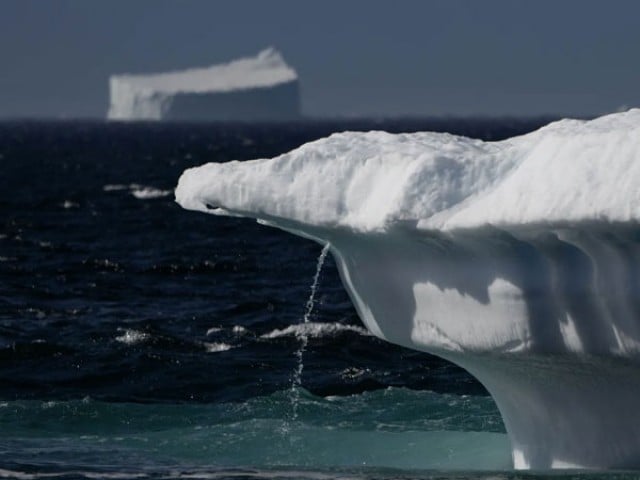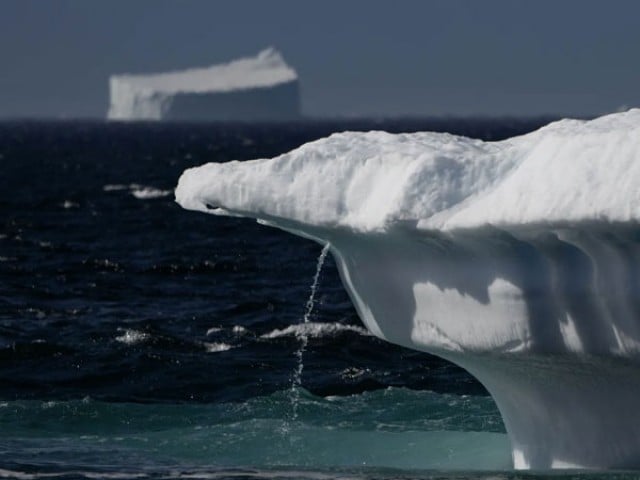
Humans are causing the melting of polar ice—Photo: AFP courtesy of CNN
New York: It is not in the hands of man to stop time, but because of humans in the world, there will come a time when everyone’s time will be reduced by one second and this is because of the melting of the polar ice, which will cause the rotation of the earth and time. Change will happen by itself.
According to a CNN report, new research shows that the hours and minutes that make up our days are determined by the rotation of the Earth, but that rotation is not constant, it can change gradually and it depends on the Earth. On the coming events and the melting of metals within it.
These unpredictable changes often mean that the world’s clocks need to be adjusted by a fraction of a second, which may seem trivial but will have a huge impact on the system, the study found.
Many seconds have been added over time, but after a long time this trend is slowing down, now that the Earth’s rotation is accelerating as its interior changes and a second will need to be removed for the first time. .
Patrizia Tavila, a member of the time department at the International Bureau of Weights and Measures in France, who was part of the study, said negative rotation of the seconds had never been included or tested, so the problems that could arise are unprecedented.
The report, published Wednesday in the research journal Nature, suggests that this may finally be happening now that global warming is slowing the melting of polar ice by one second every three years from 2026 to 2029.
Duncan Agnew, a professor of geophysics at the University of California San Diego and the author of the study, said that understanding events in global timekeeping as part of the research depends on events that occur with the effects of global warming.
Before 1955, a second was defined as the fraction of time that the Earth orbited the stars once, then came the era of highly sophisticated atomic clocks, which proved to be a more stable definition of a second.
The world began using Coordinated Universal Time (UTC) to set time zones in the 1960s, UTC relies on atomic clocks but still keeps pace with planetary motion.
On the other hand, the rate of change is not constant, the two timescales diverge slowly, meaning that a one-second delay must now be added and then adjusted.
Changes in the Earth’s circulation have long been overwhelmed by the upwelling of water on the ocean floor, which slowed its circulation, Duncan Agnew said, adding that the effects of the recent melting of polar ice have been caused by humans. are generated, and the heat generated by waste incineration has become an important factor.
They said that as the ice melts and joins the ocean, the meltwater moves from the poles to the equator, further slowing the Earth’s rotation.
(function(d, s, id){
var js, fjs = d.getElementsByTagName(s)[0];
if (d.getElementById(id)) {return;}
js = d.createElement(s); js.id = id;
js.src = “//connect.facebook.net/en_US/sdk.js#xfbml=1&version=v2.3&appId=770767426360150”;
fjs.parentNode.insertBefore(js, fjs);
}(document, ‘script’, ‘facebook-jssdk’));
(function(d, s, id) {
var js, fjs = d.getElementsByTagName(s)[0];
if (d.getElementById(id)) return;
js = d.createElement(s); js.id = id;
js.src = “//connect.facebook.net/en_GB/sdk.js#xfbml=1&version=v2.7”;
fjs.parentNode.insertBefore(js, fjs);
}(document, ‘script’, ‘facebook-jssdk’));



